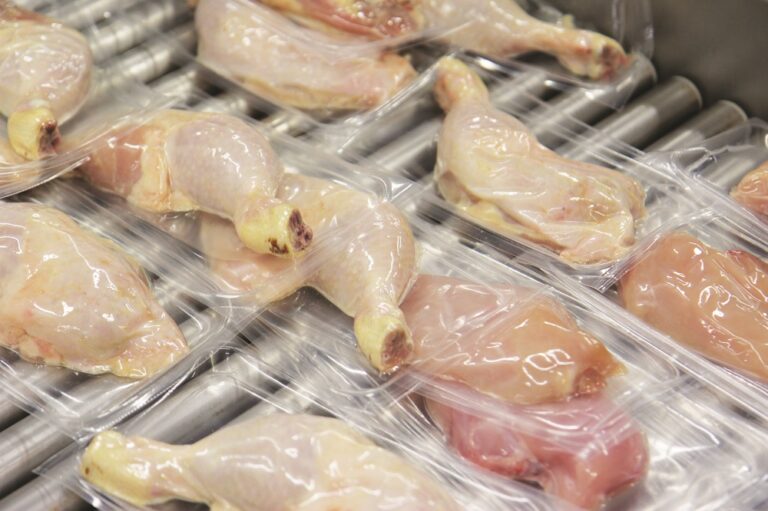The leaked government documents Jeremy Corbyn used to set off a political row about whether or not the NHS will be “up for sale” in US trade talks, have revealed the extent to which food and farming will also be a key part of post-Brexit negotiations.
Hundreds of pages of leaked documents detail private talks between US and UK officials, and reveal US officials repeatedly told UK counterparts they want the UK to accept American food safety standards, including products such as chlorinated chicken.
The documents cover meetings that took place between 2017 and July 2019. The US negotiators repeatedly emphasised they wanted the UK to have “regulatory autonomy” from the EU to allow US products to be freely traded. US officials told UK counterparts there was a philosophical difference between the two systems that was not easy to get around. “The EU aims to reduce chemicals on food; the US aims to reduce pathogens,” the documents state.
The negotiators described Theresa May’s Withdrawal agreement as a worst-case scenario because it kept the UK closely aligned to EU standards to allow US agriculture companies to sell to the UK. The documents were written before Boris Johnson took over as prime minister, so there is no indication what officials think of his renegotiated withdrawal agreement. However, the documents suggest the Trump administration favours a no-deal Brexit, describing it as giving the country “all to play for”.
Defra secretary of state Theresa Villiers has said UK food standards are not up for negotiation in any future trade agreement.
However, tensions in government between those who want to protect UK food standards and those who want to “accommodate” US demands to relax them were last month revealed in a leaked briefing prepared for Villiers.
The document warns Defra is likely to face “significant pressure” from the department headed by Liz Truss, the Department for International Trade (DIT) to relax food and environmental standards in order to sign a trade deal with the USA following Brexit, in particular by lowering the UK’s sanitary and phytosanitary standards (SPS).


